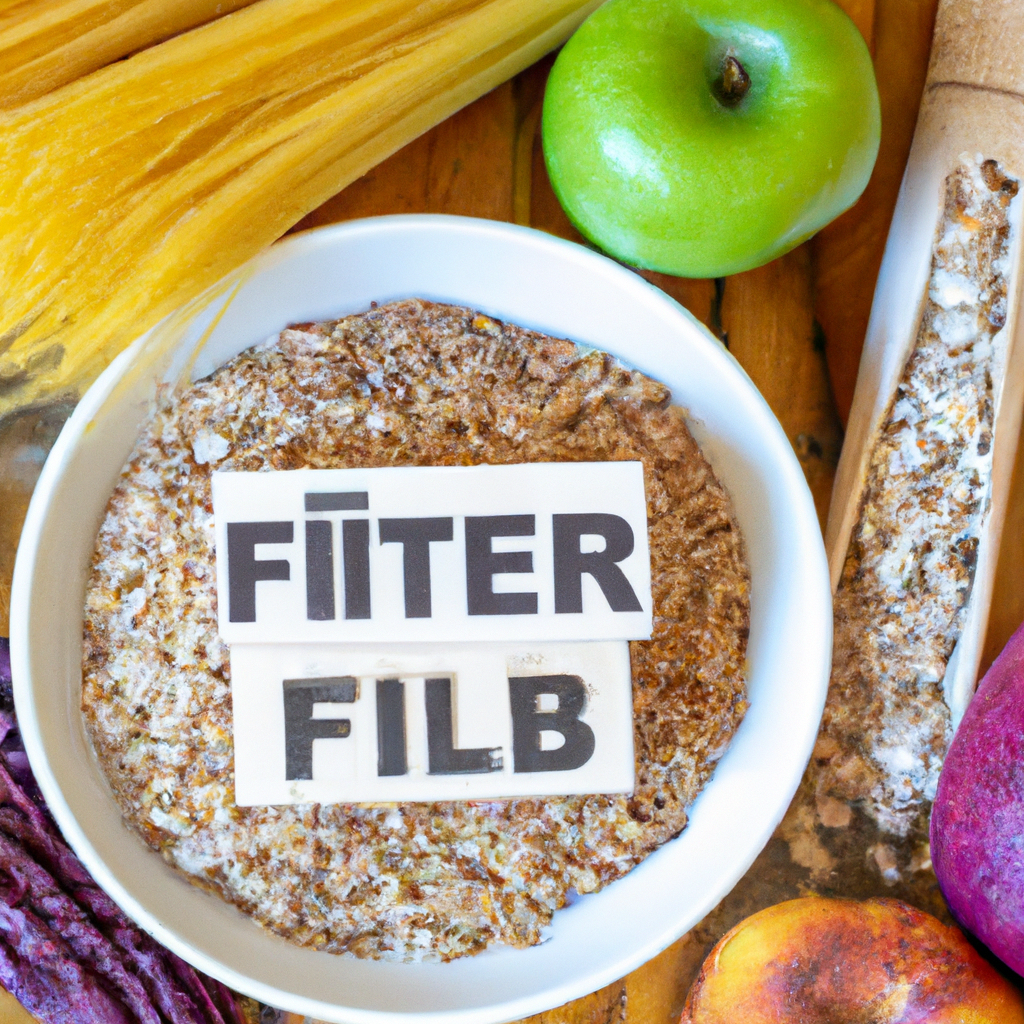Fiber is essential for both optimal digestive health and weight management. It can also provide numerous nutritional benefits, such as helping to control blood sugar, reduce cholesterol levels, and promote better gut health. If you’re looking to add more fiber to your diet, the best way to start is by incorporating fiber-rich foods into your meals. In this article, we’ll discuss the health benefits of fiber-rich foods, as well as provide you with some of the fiber-rich foods you should be eating to promote digestive health and weight management.
1. Eating Fiber-Rich Foods: The Secret to Healthy Digestion
When it comes to healthy digestion, fiber is one of the most important elements to consider. Our bodies require roughage for our digestion to function properly, and fiber is what provides this roughage in the form of carbohydrates. By including more fiber-rich foods in your daily diet, you can effectively ensure better digestion and improved overall health.
Fiber-Rich Foods: Why You Need Them
Fiber-rich foods are essential to digestive health. They are known to reduce constipation and haemorrhoids, prevent diabetes, and reduce inflammation. Additionally, fiber can be beneficial to the heart, as it helps to reduce blood pressure and cholesterol levels. Furthermore, it helps to keep you feeling full, reducing the need to snack and helping to manage your weight.
Which Foods are Rich in Fiber?
Some of the best sources of fiber-rich foods include:
- Whole Grain Cereals
- Fruits and Vegetables
- Legumes and Beans
- Nuts and Seeds
- Oats and Barley
These foods are packed full of essential vitamins and minerals, as well as dietary fiber, making them the perfect addition to a balanced diet.
Tips for Adding More Fiber to Your Diet
Adding more fiber to your diet can be simple. Start by including a small serving of fiber-rich foods in each meal, such as a side of fruit or a few spoonfuls of cooked beans. Additionally, you can opt for whole-grain instead of refined cereals and breads. Furthermore, you can also add a tablespoon of nuts or seeds to your meals for an extra boost of fiber.
2. The Benefits of Increasing Dietary Fiber Intake
Incorporating more dietary fiber into your daily routine can offer a range of benefits. Here are a few reasons to increase your fiber intake today.
Reduced Risk of Chronic Illness
Two of the biggest benefits of increasing dietary fiber in your diet is a decreased risk of developing chronic illnesses like heart disease, certain digestive disorders, and type 2 diabetes. Diets higher in fiber also aid in weight control, as fiber is known to increase feelings of fullness and control appetite.
Better Digestion
Fiber helps to improve digestion and eliminates ingredients like cholesterol, harmful toxins, and surplus hormones along with irritating compounds. The beneficial bacteria that fiber produces in the gastrointestinal tract helps to keep your bowels functioning properly while boosting nutrient absorption.
Nutritious and Delicious
Fiber-rich foods such as oats, cauliflower, and beans are widely available and affordable in the modern diet. Not only are they packed with nutrients that are beneficial to your health, but they also pack a lot of flavor! Getting creative with high-fiber foods can lead to some delicious and nutritious dishes.
Diverse Sources
Dietary fiber can be sourced from a range of sources, namely:
- Fruits – blueberries, apples, oranges
- Vegetables – kale, collard greens, spinach
- Legumes – peas, chickpeas, lentils
- Grains – oats, barley, quinoa
It really is easy to make sure you have enough dietary fiber in your diet. Simply mix and match the different sources throughout the week to keep yourself full of energy and feeling your best.
3. Strategies for Integrating Fiber-Rich Foods into Your Diet
1. Choose Whole Grains Whenever Possible. Whenever possible, opt for whole grain foods over refined grains. Examples include brown rice in place of white rice, whole grain bread in place of white bread, and oats in place of instant oatmeal. Whole grain sources of fiber are often lower in sugar and fat than their refined counterparts, as well as higher in other important vitamins and minerals.
2. Eat More Beans and Legumes. Beans and legumes are an excellent source of fiber, as well as a great plant-based source of protein. Lentils, chickpeas, black beans, kidney beans, and soybeans are just a few varieties that can be added to soups, salads, and other dishes. Or try turning them into hearty dips and spreads like hummus or refried beans.
3. Enjoy a Variety of Fruits and Vegetables. Most fruits and vegetables are good sources of dietary fiber. To ensure that you’re getting an adequate amount of fiber in your diet, make sure to include a variety of different fruits and vegetables in your meals and snacks. For example, apples, oranges, and bananas for fruit, and broccoli, spinach, and bell peppers for vegetables.
4. Add Seeds and Nuts to Your Meals. Nuts and seeds are wonderful sources of dietary fiber. Try topping yogurt, oatmeal, or salads with a sprinkle of chia, hemp, flax, or pumpkin seeds. You can also opt for a handful of almonds or walnuts as a snack.
5. Don’t Forget About Whole Grains. Whole grains should definitely be included in your diet if your goal is to increase your fiber intake. Quinoa, barley, and bulgur are great grains that contain plenty of fiber and other important nutrition. Try adding them to salads or soups, or using them as a side dish instead of white rice.
4. Jumpstart Digestive Health and Weight Management with Fiber
Fiber is a key player in healthy digestion and weight management. Studies have shown that high-fiber diets are associated with a lower body mass index (BMI).
- Consume food sources of fiber. Go for fresh vegetables, unprocessed whole grains, and legumes. Avoid refined carbs and foods that have added sugar, as these will offset any health benefits from fiber.
- Watch your portion size. Eating a well-balanced and nutrient-rich diet is important for long-term digestive health and weight management, but portion control is key. Don’t overeat even if the food is healthy.
- Drink plenty of water. Water is essential for proper digestion. Drinking plenty of it throughout the day helps to soften stools, promote regularity and flush toxins from the body.
A diet high in fiber can also be beneficial for maintaining a healthy weight. Because it takes longer to digest, fiber keeps you feeling full for longer periods of time which helps to reduce overeating. Not to mention, a good dose of fiber helps to reduce cholesterol levels and supports a healthy heart.
Moreover, fiber can help support a healthy microbiome. Fiber is the main source of food for the beneficial bacteria that live in our digestive system. By adding more fiber to your diet, you’re triggering these good bacteria to produce compounds that help keep you healthy.
Now that you know the benefits of fiber-rich foods, it’s time to make a few changes in your diet. Remember, just a few simple swaps may support better digestive health and promote healthier weight management. So why wait? Start incorporating these fiber-rich foods into your everyday eating habits and treat your body to a better future.
Bon appetite!



